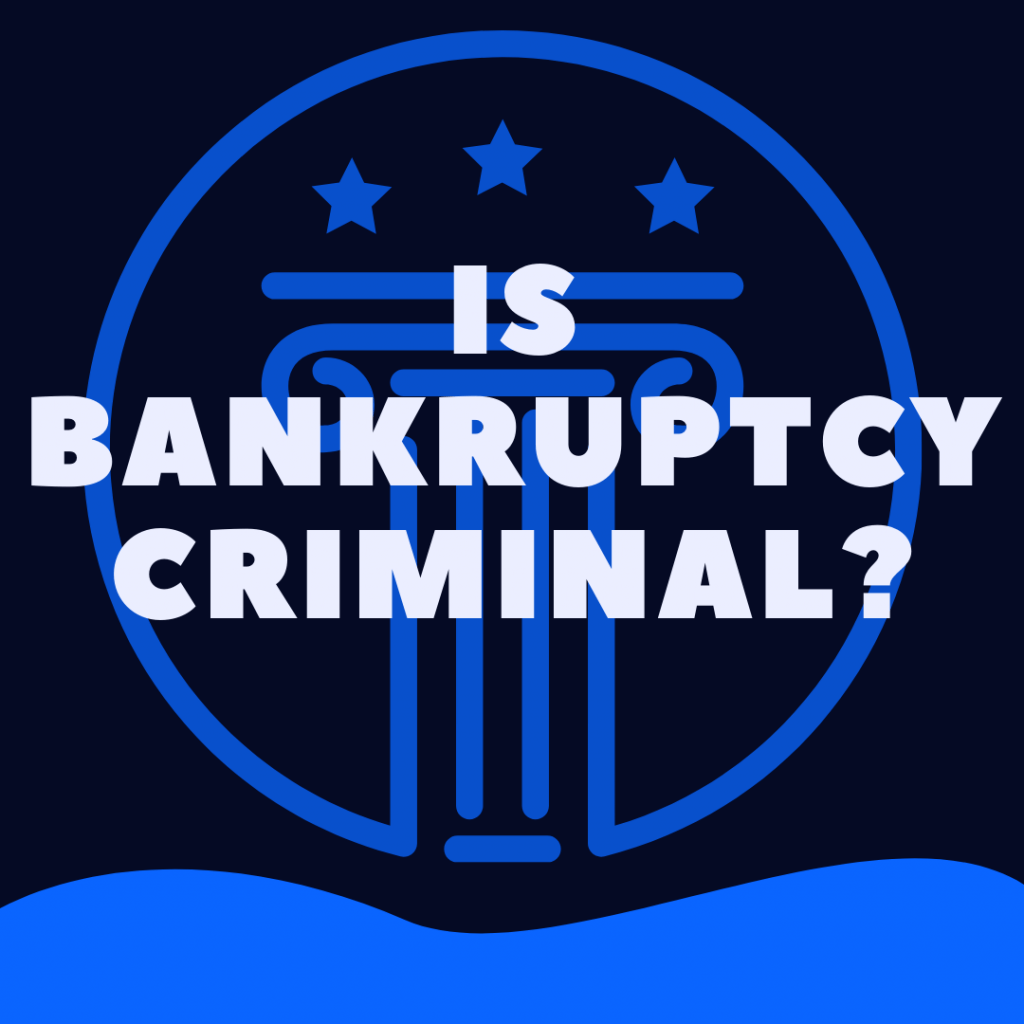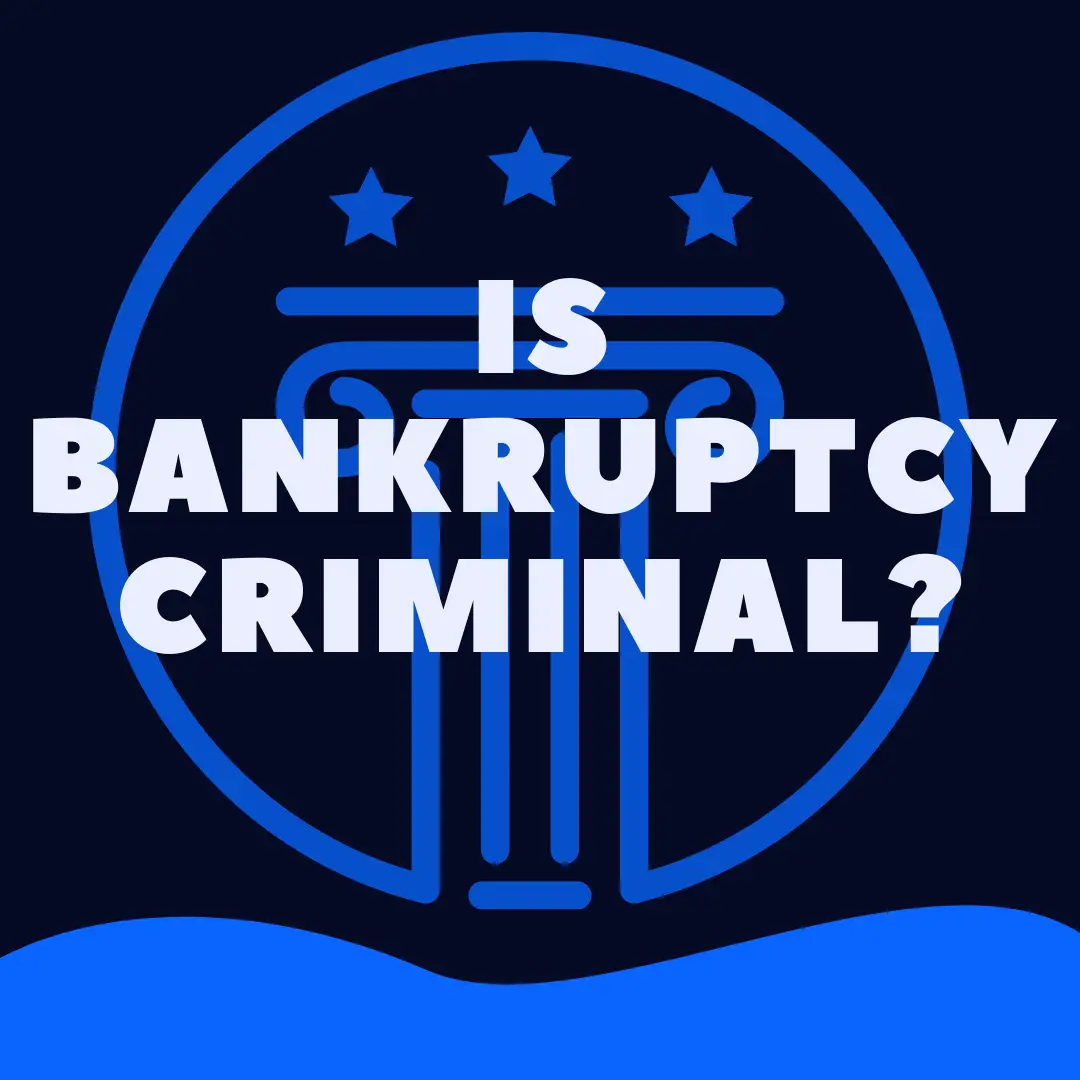No, generally a bankruptcy proceeding is not a criminal offense.
However, if the behavior that contributed to the need to file bankruptcy was illegal, or the individual availing themselves of the legal benefits of bankruptcy misrepresents his situation, lies, hides assets, or otherwise manipulates the proceeding, a criminal case could result.
Let us explain.
Is Bankruptcy a Criminal Offense? (EXPLAINED)
Disclaimer
The contents of this web page are for informational purposes only, and nothing you read is intended to be legal advice. Please review our disclaimer about law/legal-related information on this website before taking action based upon anything you read or see.
What is Bankruptcy?
Like many types of legal actions, bankruptcy is a child of statute.
This means that bankruptcy proceedings are governed by a specific set of laws, called the United States Bankruptcy Code.
These are federal laws (rather than state laws).
Thus, when you file for bankruptcy, the filing is done in federal court, and not in state or municipal court.
Thus, the same laws for bankruptcy apply to a person filing in California as they do for a person filing in Georgia.
The United States Bankruptcy Code is a set of civil laws (rather than criminal laws).
As such, filing for bankruptcy is a civil matter, and not a criminal one.
Could Bankruptcy Be A Criminal Offense?
There’s no criminal charge of “bankruptcy” to our knowledge in the United States.
Generally, we think of bankruptcy as being in the position of being unable to pay debts owed.
It is not against the law to find yourself in the place of being unable to pay debts owned.
However, there are many criminal charges that we could go along with bankruptcy, depending upon the intent of the individual who accumulated the debts.
Theft/Conversion/Trespass To Property, for example, if someone purposefully acquired property, knowing that the plan was waste or dissipate the assets without paying for them.
Fraud/Misrepresentation is another example, in the event that a person lied in order to acquire an asset of value with the intent to avoid paying for it.
it would make sense that there would be some sort of criminal negligence for continuing to accumulate debt knowing that the debtor would be unlikely to ever be able to pay the debt off (like credit card usage).
But it is pretty rare for people to be criminally prosecuted for over-charging on a credit card or falling behind on car payments.
Most prosecutors’ offices are happy to leave the resolution of unpaid debts to the civil side of things.
Can You Go To Jail For Bankruptcy?
Bankruptcy is a civil action.
With the exception of contempt (in a civil case), there is no power for a judge or anyone else in the bankruptcy proceeding to seek jail as a sanction/punishment.
Bankruptcy is not a punishment.
Bankruptcy is about organizing the debts, finding a way to pay what can be paid, and allowing all the parties to move forward in business and in life.
Without an associated criminal case (in the same or another court), jail will not be an option in a bankruptcy case.
What About Criminal Acts Under The Bankruptcy Statutes?
As noted above, bankruptcy is not a criminal case.
But separate criminal proceedings can arise out of actions taken during a bankruptcy case.
This usually occurs if a debtor:
- hides his property or other items of value to avoid having to sell them;
- lies on the bankruptcy filing paperwork;
- files under different names in different courts to advantage of the system more than is allowed under the statutes;
- commits misconduct against the trustee (like asks them to help them conceal the existence of certain assets with bribery);
- knowingly disregards any of the rules/laws associated with the bankruptcy (extremely broad reach here);
We have also seen debtors charged with the crime of perjury in federal court for intentionally and knowingly providing false information on the bankruptcy paperwork.
Wrap Up
You might also like:
- Does a Victim In a Criminal Case Have To Appear?
- Why Do Cases Go To Trial?
- Can Co-Defendants Have Contact?
- Do All Felony Cases Go To Trial?
- Is It Illegal To Change Lanes in An Intersection In Missouri?
- Are Wrongful Death Settlements Public Record?
- Can The Prosecutor Call The Defendant As a Witness?
- Can a Prosecutor Date a Defense Attorney?
- Can a Victim Ask For Charges To Be Dropped?
- Can a Victim Attend Arraignment?
- Do All Civil Cases Go To Trial?
Want to learn more about your criminal justice system?
Browse our free legal library guides for more information.


